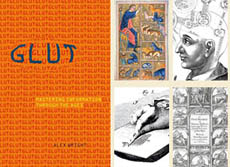John Wilkins Revisited
May 24, 2006
Matt Webb has done some useful sleuthing into John Wilkins, long since fated to go down as the butt of Borges' famous joke.
I've been doing some research into Wilkins as well (for the book I've been writing), and have been surprised to learn that the historical Wilkins bears almost no resemblance to the literary punching bag Borges props up in his essay.
"I have registered the arbitrarities of Wilkins," Borges wrote, after describing the man's ambitious classification scheme. "[I]t is clear that there is no classification of the Universe not being arbitrary and full of conjectures. The reason for this is very simple: we do not know what thing the universe is."
Borges' admittedly brilliant essay has handed Wilkins a historical bum rap, painting him as an avatar of artificial top-down classification. Unfortunately, Borges appears never to have ever actually read Wilkins' writing.
In truth, Wilkins was hardly an advocate of "arbitrary" classification; he was an empiricist, who rejected top-down epistemologies in favor of direct observation and experimentation. A philosophical heir to Francis Bacon, he helped lay the foundation for the Renaissance scientific method by arguing for the separation of scholarly inquiry from the received wisdom of the Catholic church, and urged his contemporaries not to be "so superstitiously devoted to Antiquity as for to take up everything as canonical which drops from the pen of a Father." He argued that God's will is best expressed through "natural truths" that are best discovered through "our own industry and experience." In other words, he was all in favor of bottom-up systems.
If Borges had looked deeper into Wilkins' work, he might have recognized a kindred spirit. Paradoxically, Wilkins almost certainly would have appreciated Borges' joke.
File under: Books
_____________________« Missing the point? | Karaoke night »
GLUT:
Mastering Information Through the Ages
New Paperback Edition
“A penetrating and highly entertaining meditation on the information age and its historical roots.”
—Los Angeles Times
